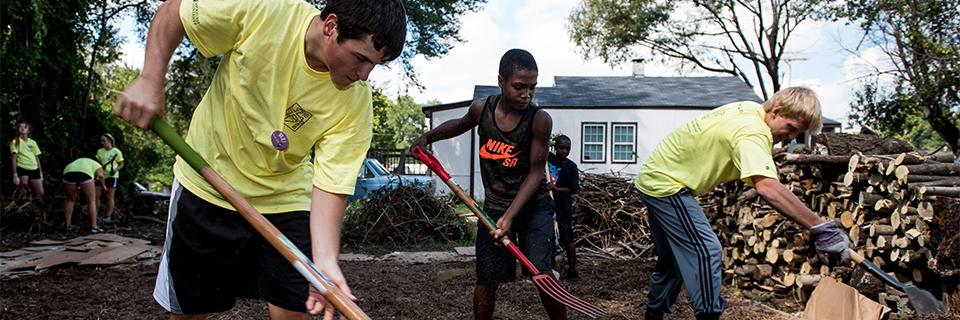Rockhurst University Earns Carnegie Foundation’s Community Engagement Classification

Rockhurst University has earned the Community Engagement Classification from the Carnegie Foundation for the Advancement of Teaching, recognizing ongoing work establishing meaningful connections between learning and teaching and the community of which the University is a part.
The announcement made public today means Rockhurst University, which was the first institution in the Kansas City area to earn the recognition, in 2010, has continuously held this designation for a decade. The current classification is valid until 2026.
“The 2010 designation was a milestone for a University that built a reputation for being ‘in the city for good,’” said Julia Vargas, Ed.D., director of the Center for Service Learning. “But it was also a motivator for the next phase — we knew we had to build on that success, to grow community engagement efforts and establish even stronger bonds with the place we call home. This reclassification shows the extent to which that vision is being lived out by our staff, faculty and students.”
In its application, the University cited efforts such as Companions in Chillicothe prison education program, the Finucane Service Project, the growth in service-learning enriched courses, partnerships throughout the University with community organizations, and research projects involving or pertaining to the local community, as well as how the impact of those initiatives is being measured.
A total of 119 colleges and universities in the U.S. earned the community engagement classification in this cycle, awarded following a process of self-study by each institution that is then assessed by a national review committee led by the Swearer Center for Public Engagement at Brown University, the administrative and research home for the Carnegie Community Engagement Classification. Of the 119 institutions classified in the 2020 cycle, 44 are receiving the classification for the first time while 75 are now re-classified, after being classified originally in 2010 or 2015. Following this award cycle, a total of 359 campuses are active holders of the designation.







